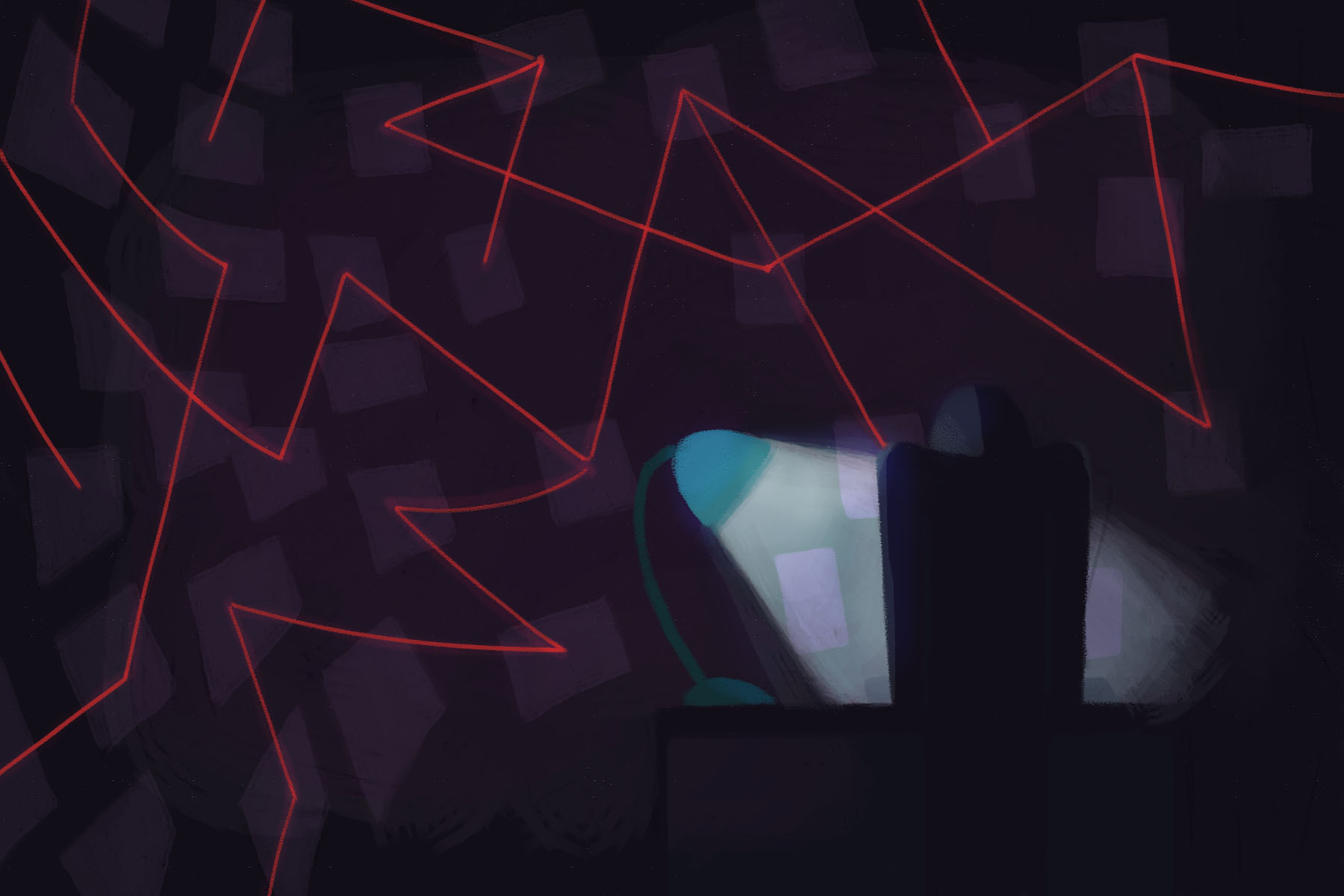Recently, I listened to a comedy podcast series hashing out the countless conspiracy theories attached to the Kennedy assassination. Personally, I’m inclined to accept the Warren Commission’s conclusion that President John F. Kennedy was assassinated by lone gunman Lee Harvey Oswald. However, after listening to the series, I realized that mine is far from an uncontroversial opinion. Alternative theories abound, and by the end of six long episodes of speculation, it seemed like there wasn’t anyone in Dealey Plaza the day the president’s motorcade rolled through that wasn’t trying to kill him.
I listened intently as I was told that Lee Harvey Oswald was a pawn, or that maybe it was a mob hit, or that there was possibly a second shooter, or that the government definitely did it. And even though I didn’t believe a word of it, I greatly enjoyed listening as more and more outlandish theories slowly repopulated Dealey Plaza with cold-blooded killers. I could comfortably laugh at the outlandish theories and the paranoid, frantic logic that spawned them, which both seemed so foreign to me.
While listening, I was shocked at the sheer number of people that subscribed to these theories. Surely such far-fetched ideas shouldn’t appeal to THAT many people. How can so many people invest so much effort and research into these stories? After learning a bit more however, I realized that perhaps the enormous impact of conspiracy theories shouldn’t be all that surprising. To an extent, human beings are just inherently attracted to the simplicity and perceived control conspiracy theories give us. In fact, even those of us who don’t subscribe to full-fledged conspiracy theories are still guilty of various levels of conspiracy thinking in our day-to-day lives.
In a 2017 article in the Current Directions of Psychological Science journal, psychologists Karen Douglas, Robbie Sutton and Aleksandra Cichocka explore the possible reasons why conspiracy theories are so appealing to us. These reasons can be generally grouped into three categories: the desire for understanding/certainty, the desire for control and security and the desire to maintain a positive self-image.
Obviously, these three desires aren’t unique to conspiracy theorists. Everyone wants certainty. No one wants to feel overwhelmed or out of control. We all want to retain a positive view of ourselves. These ubiquitous and natural human desires feature in all of our lives, and drive our decisions in one way or another. And many of the ways in which we all respond to these desires on a day-to-day basis actually resemble conspiracy thinking.
Take the desire for understanding and certainty. Basically, this desire means that we want to be able to explain the world around us. When anything happens, we want to know why. If a student gets a bad grade from her professor, she wants to know why she got that grade. If someone gets sick, they want to know what made them sick. And so these people are going to come up with theories to act as answers to these questions.
Maybe the student decides her professor is biased against her for one reason or another. The sick person could blame his roommate for not washing his hands enough. Both of these answers, whether true or not, provide the explanations that we as human beings crave. They help us avoid an uncomfortable state of uncertainty by making us feel like we understand what’s happening in our lives.
But what is it about these particular explanations that might appeal to the hypothetical people above? Surely, there are infinitely more explanations that could potentially clarify their situations. The answer to this question starts to become more clear if we consider the second desire: the desire for control and security.
The explanations offered by each of the people above give them something one of the alternative accounts might not. The student wants to believe that the professor is biased against her because the alternative — that she wrote a bad paper — is something she would rather not consider. Similarly, the sick person who blames his roommate would rather not confront the fact that no matter what he does, he really can’t pinpoint what made him sick, nor adequately prepare for it in the future.
Though there are always alternative explanations, the ones that most appeal to us are the ones that are less threatening to our current beliefs (“I’m a good student”) and make us feel that we have the most control (“If I make sure he washes his hands next time, I won’t get sick”).
The reasons these people might choose these particular explanations might also have to do with the fact that they were insecure when they thought of them. Douglas and her colleagues also found that people who felt less social acceptance were more likely to turn to conspiracy theories in order to validate themselves.
This is where the final desire, the desire to maintain a positive self-image, comes into play. Oftentimes, conspiracy theories can bolster our feeling of self-importance in the face of insecurity by making us feel as though we have privileged knowledge. The student might feel insecure in her intelligence because of her bad grade, but she can find importance in the fact that she alone knows how shallow and small her professor is. All the other students might naively think he is so smart and objective, but he’s not fooling her.
The sick person might be angry with himself for not taking more precautions to avoid becoming sick, but at least he knows exactly what it is that made him ill. When other people get sick, they can’t pinpoint why, but he knows exactly the reason, and furthermore, he knows that it was someone else’s fault. And thus, our mini-conspiracy theories are born.
We may laugh at conspiracy theories of the Kennedy assassination, moon landing or Area 51 without realizing that these are just the extremes of the type of logic we use every day. In one moment, we may marvel at how these theories have such a strong hold on people and then in the next moment decide that our friends aren’t texting us because they hate us.
Ultimately, it’s true that there is a difference between extreme conspiracy thinking and the way it manifests in normal, day-to-day life. But it’s still important to recognize the influence that conspiracy thinking has on our own views. If it’s so easy to scoff at the conclusions of extreme conspiracy thinking, what might that say about the conclusions we draw from similar logic?
The final conspiracy theory presented in the podcast series I listened to was called the “accident theory.” It posits that President Kennedy was killed by a bullet not from Oswald’s gun, but rather from the firearm of a Secret Service agent aiming for Oswald. The humiliated government used the Warren Commission to cover up what could have potentially been one of the biggest embarrassments of all time. In short, the government of this strand of conspiracy would rather lie to the people than admit its own fallibility.
Of course, after hearing the accident theory, we could simply laugh at the conspiracy thinking that created it without reflecting on the presence of the same type of thinking in our own lives. But in failing to recognize our connection with conspiracy, are we no better than the government of this account? Would we rather lie to ourselves than admit the contingency and fallibility of our own views?

















